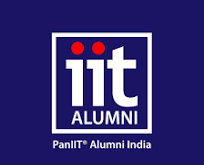Berlin / Geneva, 23 February 2024– The World Health Organization (WHO) today announced US$ 4 million in funding from donors to create a catalytic grant fund for organizations working in pathogen genomic surveillance. The fund will support projects across the world, particularly in low- and middle-income countries, to pilot projects and in doing so, create an evidence base for how to quickly scale-up pathogen genomic surveillance. The results of this kind of surveillance help countries and the world to respond more quickly and effectively to prevent outbreaks and to respond to them.
The initial grants for the catalytic fund have been provided by the Bill & Melinda Gates Foundation, The Rockefeller Foundation and Wellcome, to support the International Pathogen Surveillance Network (IPSN). IPSN is a new global network of pathogen surveillance actors convened by WHO through a Secretariat at the WHO Hub for Pandemic and Epidemic Intelligence in Berlin. The fund is hosted by the UN Foundation on behalf of the IPSN.
Pathogen genomics analyses the genetic code of viruses, bacteria and other disease-causing organisms to understand, in conjunction with other data, how infectious they are, how deadly they are, and how they spread. With this information, scientists and public health officials can identify and track pathogens to prevent and respond to outbreaks as part of a broader disease surveillance system, and to develop treatments and vaccines.
“Genomic surveillance is a critical tool for countries to respond to public health threats. However, access to genomics has been highly uneven, and there is a risk that the incredible capabilities built up during the COVID-19 pandemic will be lost as the world’s focus shifts,” said Sara Hersey, WHO Director for Collaborative Intelligence. “The new fund will support the sustainable implementation of genomic surveillance in countries at all income levels, outside of pandemics, so that we can maintain these critical capabilities within national health systems.”
“Pathogen genomics and surveillance can tell us which pathogens exist in a population and how they are transmitting and evolving. These are key tools for researchers, policy-makers and health-care workers to rapidly identify and respond to outbreaks or the emergence of drug-resistant strains,” said Wellcome’s Director of Infectious Disease, Alex Pym. “This can have a huge impact on protecting lives – especially in regions with fewer resources. This fund can generate the knowledge on how to move from tracking a pandemic to detecting new threats to public health and ensure that genomic surveillance gets sustainably embedded in healthcare systems.”
“We are proud to stand alongside other donors and partners from the International Pathogen Surveillance Network to seed this important fund,” said Manisha Bhinge, The Rockefeller Foundation’s Vice President for Health. “Pathogen genomics must become accessible to all countries and communities to ensure that we are prepared for rising pandemic and epidemic risks in the era of climate change. I am happy to be chairing the IPSN Funders Forum in support of this critical mission.”
The amount of US$ 4 million will be available for IPSN members to apply for grant funding in February 2024. The fund’s purpose is to empower lower-resource members of the IPSN to create knowledge that can benefit the global genomics surveillance community. This can be done through research to develop pathogen genomics surveillance tools as global goods, or by piloting innovative approaches that generate insights to share across the network. The fund is intended to support equity of engagement across IPSN members and provide catalytic funding for LMICs to scale-up competencies in pathogen genomic surveillance.
 Newspatrolling.com News cum Content Syndication Portal Online
Newspatrolling.com News cum Content Syndication Portal Online







